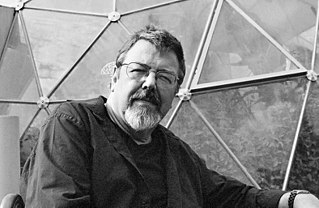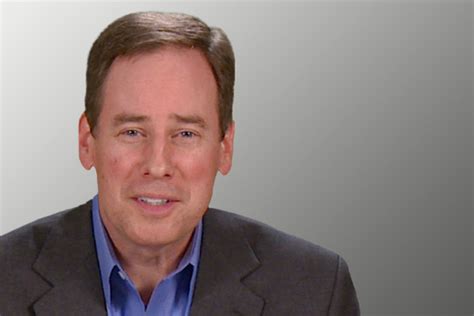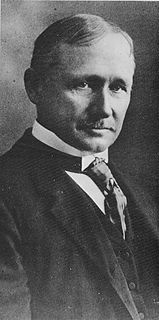Top 728 Implies Quotes & Sayings - Page 12
Explore popular Implies quotes.
Last updated on April 23, 2025.
To the "masculists" of both sexes, "femininity" implies all that men have built into the female image in the past few centuries: weakness, imbecility, dependence, masochism, unreliability, and a certain "babydoll" sexuality that is actually only a projection of male dreams. To the "feminist" of both sexes, femininity is synonymous with the eternal female principle, connoting strength, integrity, wisdom, justice, dependability, and a psychic power foreign and therefore dangerous to the plodding masculists of both sexes.
A place (lieu) is the order (of whatever kind) in accord with which elements are distributed in relationships of coexistence. It thus excludes the possibility of two thing being in the same location (place). The law of the 'proper' rules in the place: the elements taken into consideration are beside one another, each situated in its own 'proper' and distinct location, a location it defines. A place is thus an instantaneous configuration of positions. It implies an indication of stability.
Things need to be properly named. Political confusion starts with terminology confusion. Islamism implies some sort of political and social plan for Muslim people. In that classification, we find different categories. Legalist ones, traditional ones and revolutionary ones. Some of them are revolutionary but are non-violent, others are extremely violent. There are also the ones we call the literalists, like the Egyptian party Hizb al-Nour that used to be against democracy and now is getting into the political game.
To wage war on misery and to struggle against injustice is to promote, along with improved conditions, the human and spiritual progress of all men, and therefore the common good of humanity. Peace cannot be limited to a mere absence of war, the result of an ever precarious balance of forces. No, peace is something that is built up day after day, in the pursuit of an order intended by God, which implies a more perfect form of justice among men.
Taste, if it mean anything but a paltry connoisseurship, must mean a general susceptibility to truth and nobleness, a sense to discern, and a heart to love and reverence all beauty, order, goodness, wheresoever, or in whatsoever forms and accompaniments they are to be seen. This surely implies, as its chief condition, not any given external rank or situation, but a finely-gifted mind, purified into harmony with itself, into keenness and justness of vision; above all, kindled into love and generous admiration.
Statistics is, or should be, about scientific investigation and how to do it better, but many statisticians believe it is a branch of mathematics. Now I agree that the physicist, the chemist, the engineer, and the statistician can never know too much mathematics, but their objectives should be better physics, better chemistry, better engineering, and in the case of statistics, better scientific investigation. Whether in any given study this implies more or less mathematics is incidental.
In my humble opinion, non-cooperation with evil is as much a duty as is cooperation with good. But in the past, non-cooperation has been deliberately expressed in violence to the evildoer. I am endeavoring to show my countrymen that violent non-cooperation only multiplies evil and that evil can only be sustained by violence. Withdrawal of support of evil requires complete abstention from violence. Non-violence implies voluntary submission to the penalty for non-cooperation with evil.
An eternal marriage is eternal. Eternal implies continuing growth and improvement. It signifies that love will grow stronger with time and that it extends beyond the grave. It means that each partner will be blessed with the company of the other partner forever. Eternal signifies repentance, forgiveness, long-suffering, patience, hope, charity, love, and humility. All of these things are involved in anything that is eternal, and surely we must learn and practice them if we intend to claim an eternal marriage.
I dislike that premise implies that a fiction writer is incapable of dreaming up stories that can bring readers to tears, that if you are lucky enough to be living a pretty sedate life ,as I am, you've got nothing worthy of writing about, that you're incapable of making a reader's gut wrench.Frankly, that's what makes readers nervous, the sorcery of you or me or any good fiction writer making up characters who feel like real people, of telling a story that feels true but isn't.
For action, whatever its immediate purpose, also implies relief at doing something, anything, and the joy of exertion. This is the optimism that is inherent in, and proper and indispensable to action, for without it nothing would ever be undertaken. It in no way suppresses the critical sense or clouds the judgment. On the contrary this optimism sharpens the wits, it creates a certain perspective and, at the last moment, lets in a ray of perpendicular light which illuminates all one's previous calculations, cuts and shuffles them and deals you the card of success, the winning number.
Integrity is unity of the personality; it implies being brutally honest with ourselves about our intentionality. Since intentionality is inextricably bound up with the daimonic, this is never an easy, nor always pleasant pursuit. But being willing to admit our daimonic tendencies - to know them consciously and to wisely oversee them - brings with it the invaluable blessing of freedom, vigor, inner strength, and self-acceptance.
Mercy is to care, and care very deeply about one another. It is to care to the point where we are prepared to be involved with the sufferings and adversities of others. It implies that I am prepared to put myself in the other person's place. It means that I shall try to really understand why they behave as they do, even though it injures me. It is a willingness to walk a mile in the other man's moccasins before I criticize his conduct. It is the extension of good will, help, forgiveness, compassion and kindness to one who may not seem to deserve it.
Mr. Blatchford says that there was not a Fall but a gradual rise. But the very word "rise" implies that you know toward what you are rising. Unless there is a standard you cannot tell whether you are rising or falling. But the main point is that the Fall like every other large path of Christianity is embodied in the common language talked on the top of an omnibus. Anybody might say, "Very few men are really Manly." Nobody would say, "Very few whales are really whaley."
But his Lordship [tells]us that God is wholly here, and wholly there, and wholly every where; because he has no parts. I cannot comprehend nor conceive this. For methinks it implies also that the whole world is also in the whole God, and in every part of God. Norcan I find anything of this in the Scripture. If I could find it there, I could believe it; and if I could find it in the public doctrine of the Church, I could easily abstain from contradicting it.
The fact that this organisation is called the Islamic State reveals something even deeper. In fact, it implies that every single Islamist party in Egypt, Iraq or Tunisia are not really representing Islam and Muslim people. Nowadays, political Islam is going through a crisis, however this crisis is necessary, for it will lead to a changing way of thinking. In order to make it out of this dead-end, reviewing political Islam becomes mandatory.
Grace is in a great measure a natural gift; elegance implies cultivation; or something of more artificial character. A rustic, uneducated girl may be graceful, but an elegant woman must be accomplished and well trained. It is the same with things as with persons; we talk of a graceful tree, but of an elegant house or other building. Animals may be graceful, but they cannot be elegant. The movements of a kitten or a young fawn are full of grace; but to call them "elegant" animals would be absurd.
Modern literary theory sees a similarity between walking and writing that I find persuasive: words inscribe a text in the same way that a walk inscribes space. In The practicse of Everyday Life, Michel de Certeau writes, 'The act of walking is a process of appropriation of the topographical system on the part of the pedestrian; it is a special acting-out of the place...and it implies relations among differentiated positions.' I think this is a fancy way of saying that writing is one way of making the world our own, and that walking is another.
Through experiments over the past few decades physicists have discovered matter to be completely mutable into other particles or energy and vice-versa and on a subatomic level, matter does not exist with certainty in definite places, but rather shows 'tendencies' to exist. Quantum physics is beginning to realise that the Universe appears to be a dynamic web of interconnected and inseparable energy patterns. If the universe is indeed composed of such a web, there is logically no such thing as a part. This implies we are not separated parts of a whole but rather we are the Whole.
But to demand that a work be “relatable” expresses a different expectation: that the work itself be somehow accommodating to, or reflective of, the experience of the reader or viewer. The reader or viewer remains passive in the face of the book or movie or play: she expects the work to be done for her. If the concept of identification suggested that an individual experiences a work as a mirror in which he might recognize himself, the notion of relatability implies that the work in question serves like a selfie: a flattering confirmation of an individual's solipsism.
To follow Jesus implies that we enter into a way of life that is given character and shape and direction by the one who calls us. To follow Jesus means picking up rhythms and ways of doing things that are often unsaid but always derivative from Jesus, formed by the influence of Jesus. To follow Jesus means that we can't separate what Jesus is saying from what Jesus is doing and the way that he is doing it. To follow Jesus is as much, or maybe even more, about feet as it is about ears and eyes" (The Way of Jesus, Eugene H. Peterson, 22).
As a historian I understand how histories are written. My enemies will write histories that dismiss me and prove I was unimportant. My friends will write histories that glorify me and prove I was more important than I was. And two generations or three from now, some serious sober historian will write a history that sort of implies I was whoever I was.
Clearly, sustained low inflation implies less uncertainty about the future, and lower risk premiums imply higher prices of stocks and other earning assets. We can see that in the inverse relationship exhibited by price/earnings ratios and the rate of inflation in the past. But how do we know when irrational exuberance has unduly escalated asset values, which then become subject to unexpected and prolonged contractions as they have in Japan over the past decade?
Democracy cannot survive where there is such uniformity that everyone wears exactly the same intellectual uniform or point of view. Democracy implies diversity of outlook, a variety of points of view on politics, economics, and world affairs. Hence the educational ideal is not uniformity but unity, for unity allows diversity of points of view regarding the good means to a good end.
Building software implies various stages of planning, preparation and execution that vary in kind and degree depending on what's being built. [...]
Building a four-foot tower requires a steady hand, a level surface, and 10 undamaged beer cans. Building a tower 100 times that size doesn't merely require 100 times as many beer cans.
When I was living in Mexico, I started reassessing my drawing style, and plunged into a period of doing exercises and research to develop a new way to draw. The result was a style that implies more than it shows, and so, ironically, feels more "true" to the scene I want to draw than a style that is more specific. It seems to me that the reader's imagination is able to fill in the gaps more effectively than I ever could. Plus it's a lot faster and more fun to do.
As mass production has to be accompanied by mass consumption, mass consumption, in turn, implies a distribution of wealth ... to provide men with buying power. ... Instead of achieving that kind of distribution, a giant suction pump had by 1929-30 drawn into a few hands an increasing portion of currently produced wealth. ... The other fellows could stay in the game only by borrowing. When their credit ran out, the game stopped.
If I love the other person, I feel one with him or her, but with him as he is, not as I need him to be as an object for my use. Respect thus implies the absence of exploitation: it allows the other to be, to change and to develop 'in his own ways.' This requires a commitment to know the other as a separate being, and not merely as a reflection of my own ego. According to Velleman this loving willingness and ability to see the other as they really are is foregrounded in our willingness to risk self-exposure.
Edge also implies what Ben Graham....called a margin of safety. You have a margin of safety when you buy an asset at a price that is substantially less than its value. As Graham noted, the margin of safety 'is available for absorbing the effect of miscalculations or worse than average luck.' ...Graham expands, "The margin of safety is always dependent on the price paid. It will be large at one price, small at some higher price, nonexistent at some still higher price."
Memory implies that there is some static time and place you can go back to, whereas if you relive it by trying to put yourself back in that context, its more nuanced, less black and white. More traumatic, but also more exciting. When I knew I had to write about things that would be painful, I put off doing it for ages. But then eventually the fear of not doing it becomes greater than the fear of doing it.
We are morphing as we go through things, and then we're presented with the notion of a soul. A soul implies more than just the preservation of energy. Science will tell you that you can explode a person, but their energy still exists - even if they're decimated, the universe will preserve that in the form of heat or whatever it is. So there's a preservation of our molecules or whatever, but is there a preservation of a thing that's called the self if that thing is not actually ever one thing?
The continuing, direct operation of the Holy Ghost on those who are called to be God's children implies, in fact, a broadening process of incarnation. Christ, the son begotten by God, is the first-born who is succeeded by an ever-increasing number of younger brothers and sisters. There are, however, neither begotten by the Holy Ghost nor born of a virgin. . . . Their lowly origin (possibly from the mammals) does not prevent them from entering into a close kinship with God as their father and Christ as their brother.
Besides, whoever keeps the future in front of him and the past at his back is doing something else that's hard to imagine. For the image implies that events somehow already exist in the future, reach the present at a determined moment, and finally come to rest in the past. But nothing exists in the future; it is empty; one might die at any minute. Therefore such a person has his face toward the void, whereas it is the past behind him that is visible, stored in the memory.
Politics have always covered two distinct kinds of problems: problems of administrative routine, and those that may be called 'questions of the moment.' A question of the moment is, indeed, a substitute for some notion, such as the idea of God, or hereditary monarchy, or national glory, that has hitherto acted as a symbol of human co-ordination. It provides no new positive certainty to replace the discredited certainty, but is what the name implies: the raising of a question which the old certainty no longer answers.
A risk-free life is far from being a healthy life. To begin with, the very word "risk" implies worry, and people who worry about every bite of food, sip of water, the air they breathe, the gym sessions they have missed, and the minutiae of vitamin doses are not sending positive signals to their cells. A stressful day sends constant negative messaging to the feedback loop and popping a vitamin pill or choosing whole wheat bread instead of white bread does close to zero to change that.
What a country wants to make it richer is never consumption, but production. Where there is the latter, we may be sure that there is no want of the former. To produce, implies that the producer de_sires to consume; why else should he give himself useless labor? He may not wish to consume what he himself produces, but his motive for producing and selling is the desire to buy. Therefore, if the producers generally produce and sell more and more, they certainly also buy more and more.
Suppose whether or not someone tells me a lie depends only on whether he wants to, but he is morally indifferent, he doesn't care much about the truth or about me, and his self interest, which he worships, tells him to lie, and so it comes about that given his psychology, it is a forgone conclusion that he will lie to me. I think in this case he is still blameworthy, and that implies, among other things, that he did something he ought not do.
But what will happen even if we do burn down the Jews synagogues and forbid them publicly to praise God, to pray, to teach, to utter God's name? They will still keep doing it in secret. If we know that they are doing this in secret, it is the same as if they were doing it publicly. for our knowledge of their secret doings and our toleration of them implies that they are not secret after all and thus our conscience is encumbered with it before God.
The only difference between causation and the value is that the word "cause" implies absolute certainty whereas the implied meaning of "value" is one of preference. In classical science it was supposed that the world always works in terms of absolute certainty and that "cause" is the more appropriate word to describe it. But in modern quantum physics all that is changed. Particles "prefer" to do what they do. An individual particle is not absolutely committed to one predictable behavior. What appears to be an absolute cause is just a very consistent pattern of preferences.
The role of metaphysics in relation to other disciplines, whether philosophical or not and including the natural sciences, is thus a foundational role. Lack of clarity in the concepts of metaphysics implies lack of clarity in other disciplines - both theoretical and practical disciplines - employing those concepts or employing concepts that depend on those of metaphysics.
Memory is therefore, neither Perception nor Conception, but a state or affection of one of these, conditioned by lapse of time. As already observed, there is no such thing as memory of the present while present, for the present is object only of perception, and the future, of expectation, but the object of memory is the past. All memory, therefore, implies a time elapsed; consequently only those animals which perceive time remember, and the organ whereby they perceive time is also that whereby they remember.
But technology is the real skin of our species. Humanity, correctly seen in the context of the last five hundred years, is an extruder of technological material. We take in matter that has a low degree of organization; we put it through mental filters, and we extrude jewelry, gospels, space shuttles. This is what we do. We are like coral animals embedded in a technological reef of extruded psychic objects. All our tool making implies our belief in an ultimate tool. That tool is the flying saucer, or the soul, exteriorized in three-dimensional space.
The present moment has always been available to spiritual seekers, but as long as you are seeking you are not available to the present moment. "Seeking" implies that you are looking to the future for some answer, or for some achievement, spiritual or otherwise. Everybody is in the seeking mode, seeking to add something to who they are, whether it be money, relationships, possessions, knowledge, status.. or spiritual attainment.
Rebirth is an affirmation that must be counted among the primordial affirmations of mankind. The concept of rebirth necessarily implies the continuity of personality. Here the human personality is regarded as continuous and accessible to memory, so that, when one is incarnated or born, one is able, potentially, to remember that one has lived through previous existences, and that these existences were one's own, ie, they had the same ego form as the present life. As a rule, reincarnation means rebirth in a human body.
Art and the triumph of the human spirit - the two combined thrill me. It's the "Braveheart" moment, the stuff Joseph Campbell talks about, "the heroes journey," a beautiful documentary on a poignant topic, the fireman saving a kitten from a burning building. It's the combo of heroism and kindness against the odds or even good reason. It implies immortality because it is the domain of the soul. That evidence of the spirit of life is what makes me get out of bed in the morning.
Any piece of knowledge which the pupil has himself acquired- any problem which he has himself solved, becomes, by virtue of the conquest, much more thoroughly his than it could else be. The preliminary activity of mind which his success implies, the concentration of thought necessary to it, and the excitement consequent on his triumph, conspire to register the facts in his memory in a way that no mere information heard from a teacher, or read in a schoolbook, can be registered.
[T]ruly to escape Hegel involves an exact appreciation of the price we have to pay to detach ourselves from him. It assumes that we are aware of the extent to which Hegel, insidiously perhaps, is close to us; it implies a knowledge, in that which permits us to think against Hegel, of that which remains Hegelian. We have to determine the extent to which our anti-Hegelianism is possibly one of his tricks directed against us, at the end of which he stands, motionless, waiting for us.
If we wait for some people to become agreeable or attractive before we begin to love them, we will never begin. If we are content to give them a cold impersonal 'charity' that is merely a matter of obligation, we will not trouble to understand them or to sympathize with them at all. And in that case we will not really love them, because love implies an efficacious will not only to do good to others exteriorly but also to find some good in them to which we can respond."
I don't like the term 'dinner as theater,' because that implies something thespian that I don't want to tie into this, but there are plenty of times that people go out to dinner because they want to have an experience. There are, however, probably many more times that people go out to eat because it's 7 o'clock and it's time to eat.
Can one have love? If we could, love would need to be a thing, a substance that one can have, own, possess. The truth is, there is no such thing as love. Love is an abstraction, perhaps a goddess or an alien being, although nobody has ever seen this goddess. In reality, there exists only the act of loving. To love is a productive activity. It implies caring for, knowing, responding, affirming, enjoying: the person, the tree, the painting, the idea. It means bringing to life, increasing his/her/its aliveness. It is a process, self-renewing and self increasing.
To preserve wild animals implies generally the creation of a forest for them to dwell in or resort to. So it is with man. A hundred years ago they sold bark in our streets peeled from our own woods. In the very aspect of those primitive and rugged trees there was, methinks, a tanning principle which hardened and consolidated the fibres of men's thoughts. Ah! already I shudder for these comparatively degenerate days of my native village, when you cannot collect a load of bark of good thickness, and we no longer produce tar and turpentine.
Any real change implies the breakup of the world as one has always known it, the loss of all that gave one an identity, the end of safety. And at such a moment, unable to see and not daring to imagine what the future will now bring forth, one clings to what one knew, or dreamed that one possessed. Yet, it is only when a man is able, without bitterness or self-pity, to surrender a dream he has long cherished or a privilege he has long possessed that he is set free - he has set himself free - for higher dreams, for greater privileges.
Louis XIV was very frank and sincere when he said: I am the State. The modern statist is modest. He says: I am the servant of the State; but, he implies, the State is God. You could revolt against a Bourbon king, and the French did it. This was, of course, a struggle of man against man. But you cannot revolt against the god State and against his humble handy man, the bureaucrat.
The fact that the laws of physics don't change as if you move in time has physical implications that there's this thing called energy and energy is conserved, and the same thing - and the fact that the laws of physics don't change of you move back and forth in different directions in space implies that there is something called momentum and momentum is conserve and doesn't change as you evolve in time.
In the past the man has been first; in the future the system must be first. This in no sense, however, implies that great men are not needed. On the contrary, the first object of any good system must be that of developing first-class men; and under systematic management the best man rises to the top more certainly and more rapidly than ever before.
Subjects who reciprocally recognize each other as such, must consider each other as identical, insofar as they both take up the position of subject; they must at all times subsume themselves and the other under the same category. At the same time, the relation of reciprocity of recognition demands the non-identity of one and the other, both must also maintain their absolute difference, for to be a subject implies the claim of individuation.
The problem, often not discovered until late in life, is that when you look for things like love, meaning, motivation, it implies they are sitting behind a tree or under a rock. The most successful people recognize, that in life they create their own love, they manufacture their own meaning, they generate their own motivation. For me, I am driven by two main philosophies, know more today about the world than I knew yesterday. And along the way, lessen the suffering of others. You'd be surprised how far that gets you.
I can get my head turned by a good-looking guy as much as the next girl. But sexy doesn't impress me. Smart impresses me, strength of character impresses me. But most of all, I am impressed by kindness. Kindness, I think, comes from learning hard lessons well, from falling and picking yourself up. It comes from surviving failure and loss. It implies an understanding of the human condition, forgives its many flaws and quirks. When I see that in someone, it fills me with admiration.
Choice implies consciousness - a high degree of consciousness. Without it, you have no choice. Choice begins the moment you disidentify from the mind and its conditioned patterns, the moment you become present....Nobody chooses dysfunction, conflict, pain. Nobody chooses insanity. They happen because there is not enough presence in you to dissolve the past, not enough light to dispel the darkness. You are not fully here. You have not quite woken up yet. In the meantime, the conditioned mind is running your life.























































